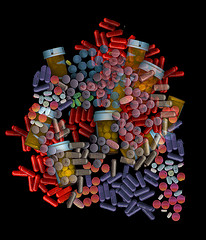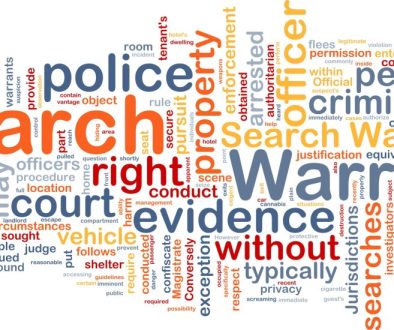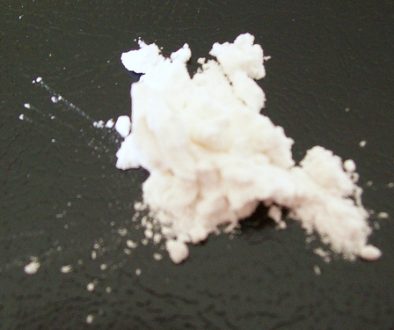Drug Possession & New Jersey- Indictable v. Non-Indictable

Our law firm defends illegal drug and narcotics charges in the Commonwealth of Pennsylvania and the State of New Jersey. As I have stated on numerous occasions, while the 2 jurisdictions share borders and bridges, they don’t address these criminal charges the same way. While Pennsylvania classifies possession with the intent to distribute as a felony offense and simple possession as a misdemeanor, New Jersey doesn’t have these classifications, and actually considers possession and possession with the intent to distribute or deliver illegal drugs and narcotics felony offenses. The focus of this blog is drug possession under Section 2C: 35-10 and not manufacturing, distributing, or dispensing controlled or illegal substances under 2C: 35-5 of New Jersey’s Criminal Code. I encourage you to read my article on drug distribution charges in New Jersey to understand more about that topic and my previous articles on possession with the intent to distribute vs. simple possession in Pennsylvania.
Illegal Drug Possession Charges—Indictable Offenses
In New Jersey, it is illegal for any person to knowingly or purposely obtain or possess a controlled substance unless it was done through a valid prescription through a medical practitioner (doctor). New Jersey, like Pennsylvania, classifies controlled substances into 1 of 5 categories or Schedules. With the exception of marijuana and any Schedule V drug, any person who is convicted of the illegal possession of these substances (Schedules I-IV) is guilty of a crime of the 3rd degree which is punishable by up to 3-5 years in prison and a $35,000 fine. Keep in mind, however, that there is a presumption for non-incarceration for first time offenders, but all drug offenses in New Jersey, regardless of their severity, carry with them a potential mandatory minimum 6 month driver’s license suspension regardless of whether the offense actually took place in a car.
New Jersey, like Pennsylvania, however, treats marijuana differently even though the federal government still classifies it as a Schedule I Controlled Substance. The possession of 50 or more grams of marijuana or more than 5 grams of hashish is a crime of the 4th degree in the Garden State, while possession of 50 grams or less of this substance commits a disorderly person’s offense (non-indictable). While 2nd or subsequent convictions do not increase the criminal level of the offense, but the potential for prison time and monetary fines. Remember that there is a difference between an indictable crime in New Jersey and an offense. My article on this topic is a great resource to understand the difference.
New Jersey Drug Possession As a Disorderly Persons Offense – 2C: 35-10(b) and 2C:35-10(c)
While the illegal possession of any controlled substance is normally graded as a crime of the 3rd or 4th degree, Section 2C: 35-10(b) also permits the State to charge this offense as a disorderly persons offense. The difference between charge under 35-(10)(b) and 35-10(a) is that person used the drug or narcotic for a purpose other than the treatment of a sickness or injury as prescribed by a physician. Remember however that Schedule I controlled substances include drugs like heroin, cocaine, LSD, and marijuana. While New Jersey’s position on marijuana has changed (along with Pennsylvania) all of the controlled substances in Schedule I serve no medical purpose and have a high potential for abuse and dependency. This means that a person who is found guilty of simple possession of any Schedule I substance, with the exception of marijuana, is guilty of a 3rd degree crime. There is no argument to assert that a person committed a disorderly person’s offense as they could not have received them from a doctor. Under 2C:35-10(c), however, a person is guilty of disorderly person offense if they come into the possession of any controlled substance and fail to surrender it to police. This offense, unlike an offense under 2C:35-10(b) would include schedule I drugs like heroin, cocaine, and LSD.
School Zones & Illegal Drug Possession in New Jersey
In addition to standard sentencing guidelines, a person who illegally possesses a controlled substance on or within 1,000 feet of school property must perform 100 hours of community service. For more information on drug charges and New Jersey school zones, read my article on this topic.
Defenses & Diversion Programs for Drug Offenses
It is important to understand the consequences of simple possession in New Jersey, as most are charged with this offense as opposed to distribution or delivery charges. Remember the burden is always on the state to establish guilt beyond a reasonable doubt and to obtain a conviction the prosecution must establish either actual or constructive possession of these substances.
In addition, a first time offender may qualify for diversion programs such as Pre-Trial Intervention (PTI) which can prevent both a criminal conviction and a possibly potential driver’s license suspension. Read my article to understand more on this issue.
For more information on drug crimes in New Jersey, I encourage you to keep reading my blog, visit my free download section, or contact our office.



